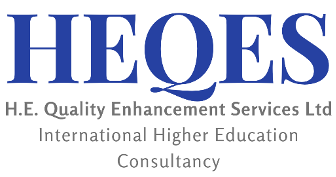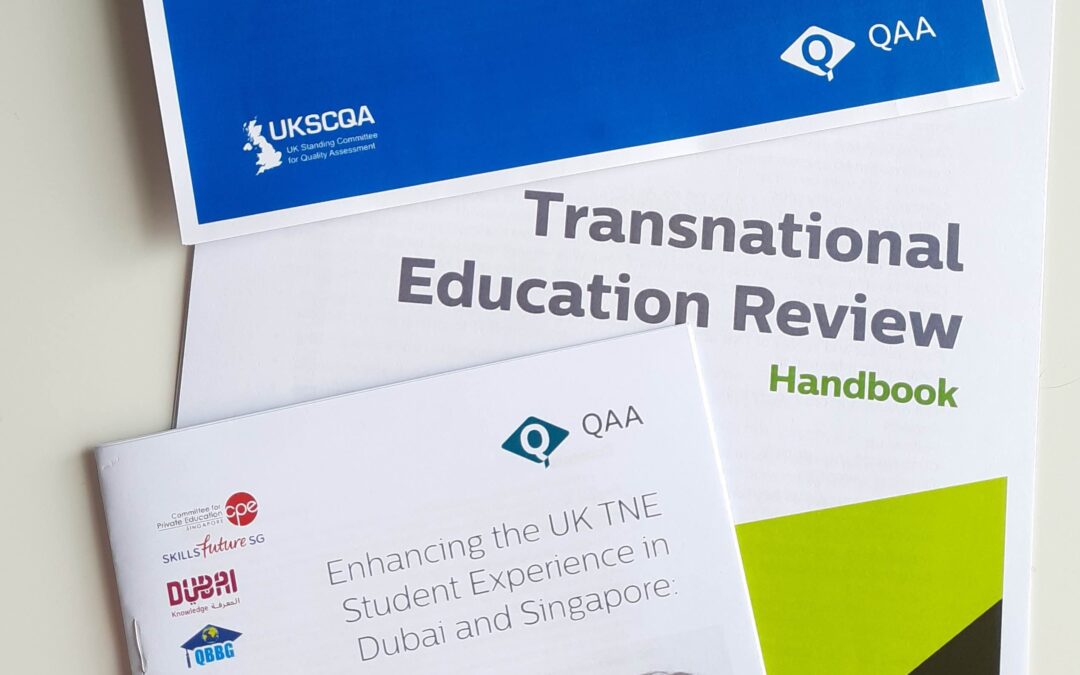Delighted to be working on this project. Good to have the opportunity to contribute to the continued success of the UK’s higher education TNE provision. I wonder just how many people the UK has helped to educate through its transnational provision over the decades? I assume it all began with the University of London’s External programme.
As it’s not something that is normally particularly visible, I thought I’d write something about the process of review method development. My approach may not be typical.
I was involved with supporting and working on TNE when I was with QAA – so was familiar with previous approaches, with all the discussions and debates over 2018 and 2019. Therefore, I started with a good knowledge base on which to draw, but an open mind and a strong commitment to the project itself, with a belief in the importance of a continuing programme of UK-wide review. For me, it is important to demonstrate to our TNE students that our international provision receives care and attention – not only by the universities offering TNE, important though that is, but at a UK level.
The basic stages: development of a consultation draft and consultation questionnaire; an open consultation – with workshop sessions to enable engagement and dialogue; analysis of the outcome of the consultation; agreeing and making the resulting changes; finalisation and publication, scheduled for January 2021.
Collaboration, seeking expert views and testing ideas, is fundamental for me. With 30 working days to develop the consultation draft and questionnaire, it’s quite tight. Not easy to ‘recruit’ a small expert group in support at a time that coincides with clearing, the impacts of the A levels U-turn on admissions and the start of a new academic year with social distancing, health and hygiene changing how almost everything will need to happen. Nevertheless, UK HE colleagues, of course, step up and are helping to refine ideas.
There is also support from UUK, through UUK International, and GuildHE as the commissioning bodies, so I have the benefit of their expertise, alongside QAA’s knowledge. Draft development is, therefore, an iterative process – material shared, work on another aspect while colleagues feedback, refine and re-share.
In terms of working method. I started with the 11 principles endorsed by the earlier TNE consultation. The overall desire is to have something that delivers real benefit but limits the demands on UK HE providers. With 11 guiding principles achieving simplicity is a challenge but we’ll keep pushing to try to achieve an optimum result.
I began by analysing what each principle meant for a review process and how they should inter-relate. It is an enhancement-led approach but what, precisely, will that mean for how the method works in practice, for providers and for review teams? The new model must have the student experience at its heart, ensuing the equivalence of the student experience and student outcomes between TNE and UK-based students – in what ways can the focus on the student experience and/or students themselves be put at the heart of TNE review? What are the best ways to ensure the equivalence of student outcomes as part of the process and in the spirit of enhancement? How best to draw on available metrics? What is it about the external review of the UK’s HE TNE provision that generates trust in our systems by international partners, what is needed to maintain the reputation of the UK’s quality assurance approach?
That process of reflection led to an initial draft – and a list of queries. While feedback on the first draft comes back, I’ll be working on some of those pesky queries, bringing together an initial list of consultation questions and preparing supporting information for the method. In the mix there is also contributing to general communication and keeping core stakeholders informed and involved. Then it’s the process of refining and improving in response to feedback – bringing everything together and finalising for 25 Sept ready for the consultation launch on 5 October. “Simples” as a Meerkat would say.
Coming next:
Exploring why TNE review is especially important in the context of debates around decolonising the curriculum and the shift away from Western dominance of global higher education.


Recent Comments